Amazon building delivery network: Amazon has taken another step to disrupt transportation through its  new Delivery Service Partners program, which is creating a network of small business owners operating fleets of up to 40 delivery vehicles. Hundreds of small business owners may join, which could further take share away from UPS, FedEx, and the US Postal Service. Those joining the new network will get training and use of logistics technology from Amazon. Participating businesses can get discounts on vehicles, uniforms, fuels, and insurance. In recent years, Amazon has been building its logistics and transportation presence through air freight delivery, heavy-duty trucks, and the Amazon Flex network of independent contractors. President Donald Trump has criticized Amazon for getting the U.S. Postal Service to deliver its packages at bargain prices and for paying “little or no taxes to state & local governments,” according to one of his tweets.
new Delivery Service Partners program, which is creating a network of small business owners operating fleets of up to 40 delivery vehicles. Hundreds of small business owners may join, which could further take share away from UPS, FedEx, and the US Postal Service. Those joining the new network will get training and use of logistics technology from Amazon. Participating businesses can get discounts on vehicles, uniforms, fuels, and insurance. In recent years, Amazon has been building its logistics and transportation presence through air freight delivery, heavy-duty trucks, and the Amazon Flex network of independent contractors. President Donald Trump has criticized Amazon for getting the U.S. Postal Service to deliver its packages at bargain prices and for paying “little or no taxes to state & local governments,” according to one of his tweets.
Looking at the Big Picture: Green Auto Market’s take on developments impacting the auto industry, global economy, and clean transportation.
Jaguar Land Rover has upped its investments in electrified vehicles by 26% — now up to 13.5 billion pounds ($18 billion) over the next three years. The British automaker plans to offer electrified versions of all its nameplates. The company has seen its diesel vehicle sales drop and low profitability led to negative cash flow. JLR plans to produce by 2025 three versions of all its vehicles, including those powered by petroleum fuels, batteries, or a combination of both. The automaker will only offer all-electric versions of its product lineup if there is enough demand, a company spokesman said. This year has seen introduction of the Jaguar I-Pace all-electric crossover. The company plans to use its China factory to produce an EV such as the I-Pace, where competitive brands Audi to Mercedes are investing money to dominate that part of the market.
Volt getting faster charger: General Motors has cut charging time down for the 2019 Chevrolet Volt plug-in hybrid nearly in half by doubling the kilowatt capacity. The new 7.2 kilowatt charging system reduces the charging time from about 4.5 hours to 2.3 hours with a 240-volt outlet, GM said Thursday. The enhanced charging system is standard on the Volt Premier trim and will be available as an option on LT trim for the 2019 model year. Range will remain the same on the 2019 model, with 53 miles of battery only and total range of 420 miles on gasoline and electricity.
Tesla Model 3 hits more snags: Tesla’s struggles to hit Model 3 production continue, with a fourth assembly line added this month under a tent at its Fremont, Calif., plant. Reaching the 5,000 units per week by the end of June isn’t looking good. Battery supplier Panasonic has been facing supply shortages, which would affect Tesla at the Nevada Gigafactory. There have also been two fires at the Fremont plant this month that forced temporary production halts. Reaching the overall target has been a missed mark for Tesla ever since the beginning of Model 3 output.
Hyundai enters energy storage market: Hyundai Motor Group is working with Finnish corporation Wärtsilä for second-life electric vehicle batteries to reach the growing energy storage market. The global partnership will combine HMG’s expansion in electric vehicles with Wärtsilä’s growing energy business, which includes 67 GW of installed power plants and advanced energy storage technologies and software created through the acquisition of Greensmith Energy. It will tap into Wärtsilä’s existing customer and channel networks across 177 countries globally. Hyundai joins up with several other global automakers, such as Nissan, Tesla, and BMW, now serving the energy storage market.
Lyft raising more capital: Ride-hailing firm Lyft has raised $600 million in a funding round led by Fidelity Management & Research Company, a subsidiary of Fidelity Investments and a prior Lyft investor. The company could raise up to $1 billion if its able to secure a strategic investor. Prior rounds have included General Motors and Chinese ride-hailing leader Didi Chuxing. Lyft has raised over $4.91 billion in venture capital and private equity funding, according to Crunchbase data. It’s market valuation is now at about $15 billion, double what it was during an April 2017 valuation. Lyft continues to battle Uber for ride-hailing and ride-sharing customers, and has been slowly expanding its presence beyond the U.S. market.
Kroger entering autonomous delivery business: Grocery retailer Kroger is offering same-day autonomous vehicle deliveries through a partnership with self-driving vehicle startup Nuro. A pilot project will start this fall in several markets yet to be announced. It will use Nuro’s electric pod vehicles for short-range deliveries. The startup hopes to have a strong presence in “last-mile delivery” in markets such as groceries, dry cleaning, meals, an item left at a friends house, and other services. Kroger, which runs the Ralph’s grocery chain, has been getting ready to compete directly with Amazon and its grocery delivery service.

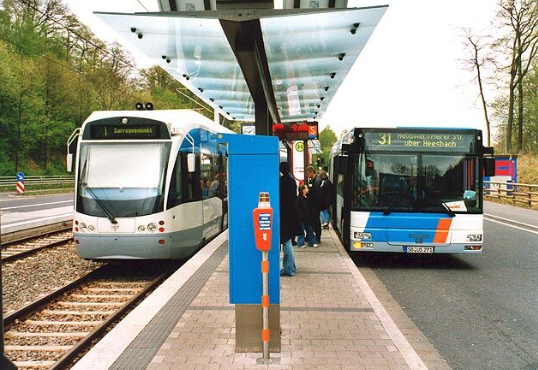 the vote activism from Koch brothers-funded Americans for Prosperity. That group is seeing success fighting against other public transit projects around the country. The Koch brothers want to see public transit go away and government funds go into restoring highways and roads. The Koch Industries conglomerate is a major producer of gasoline and asphalt, and also makes seatbelts, tires, and other automotive parts. The Trump administration had promised to back highway infrastructure funding, but that has faded away. Americans for Prosperity is now filling some of that void. Supporters of transit project investments say that having light-rail and more buses reduces traffic congestion and air pollution in a city. They also see transit as a platform for bringing in more electric and alternative fuel-powered buses. The
the vote activism from Koch brothers-funded Americans for Prosperity. That group is seeing success fighting against other public transit projects around the country. The Koch brothers want to see public transit go away and government funds go into restoring highways and roads. The Koch Industries conglomerate is a major producer of gasoline and asphalt, and also makes seatbelts, tires, and other automotive parts. The Trump administration had promised to back highway infrastructure funding, but that has faded away. Americans for Prosperity is now filling some of that void. Supporters of transit project investments say that having light-rail and more buses reduces traffic congestion and air pollution in a city. They also see transit as a platform for bringing in more electric and alternative fuel-powered buses. The 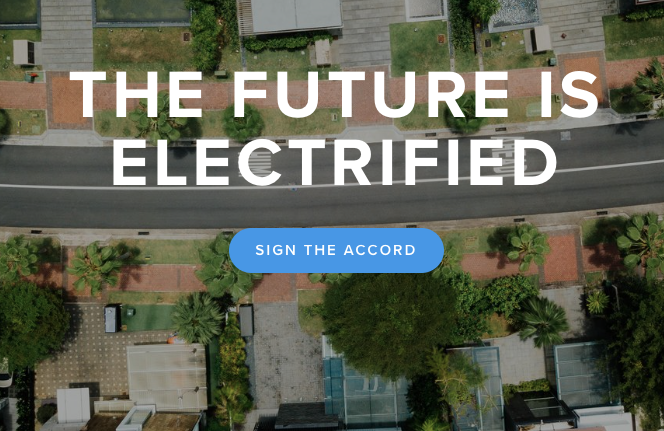 electrification can be moved forward. Principles have been endorsed on building the needed energy infrastructure to guide local, state, and federal policymakers. Other organizations endorsing the accord include CALSTART, Ceres, Consumer Federation of America, Consumers Union, Electrification Coalition, NRDC, Plug In America, Sierra Club, Union of Concerned Scientists, utility companies, and Clean Cities coalitions. Britta Gross, director, GM’s advanced vehicle commercialization policy, said that “the accord lays out the essential building blocks for a compelling energy infrastructure that we can all rely on for decades to come. Innovations in transportation electrification will benefit society as a whole — and cross-industry, multi-stakeholder cooperation is key.”
electrification can be moved forward. Principles have been endorsed on building the needed energy infrastructure to guide local, state, and federal policymakers. Other organizations endorsing the accord include CALSTART, Ceres, Consumer Federation of America, Consumers Union, Electrification Coalition, NRDC, Plug In America, Sierra Club, Union of Concerned Scientists, utility companies, and Clean Cities coalitions. Britta Gross, director, GM’s advanced vehicle commercialization policy, said that “the accord lays out the essential building blocks for a compelling energy infrastructure that we can all rely on for decades to come. Innovations in transportation electrification will benefit society as a whole — and cross-industry, multi-stakeholder cooperation is key.”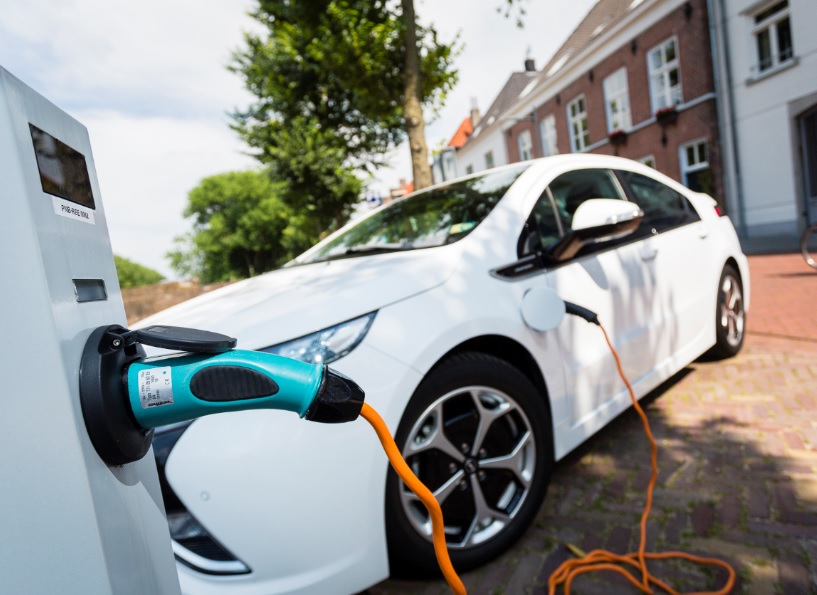 Scorecard, a three-tier ranking system acknowledging plug-in electrified vehicle state-level actions to support adoption of the technology. California, Maryland, and Connecticut made Tier 1; followed by Massachusetts, New York, and New Jersey at Tier 2; and Vermont, Rhode Island, Oregon, and Maine at Tier 3. The coalition used a weighted ranking system and appraised state-level policy actions for three categories: state-provided incentives to consumers; availability and support of public refueling infrastructure; and, outreach campaigns to educate the public. “While there are more than 700,000 EVs on U.S. roads today, electric vehicles are still only about one percent of U.S. light-duty vehicle sales. As state legislatures look to automakers to increase the availability and diversity of PEV models in all ZEV MOU states, the scorecard is meant to be used as a resource for the public and policymakers,” said Ben Prochazka, vice president of the EC. “It’s a tool that can be used to decide whether states should take new, or enhance current, actions that will accelerate consumer demand — in turn catalyzing both vehicle availability and more EVs on the road.”
Scorecard, a three-tier ranking system acknowledging plug-in electrified vehicle state-level actions to support adoption of the technology. California, Maryland, and Connecticut made Tier 1; followed by Massachusetts, New York, and New Jersey at Tier 2; and Vermont, Rhode Island, Oregon, and Maine at Tier 3. The coalition used a weighted ranking system and appraised state-level policy actions for three categories: state-provided incentives to consumers; availability and support of public refueling infrastructure; and, outreach campaigns to educate the public. “While there are more than 700,000 EVs on U.S. roads today, electric vehicles are still only about one percent of U.S. light-duty vehicle sales. As state legislatures look to automakers to increase the availability and diversity of PEV models in all ZEV MOU states, the scorecard is meant to be used as a resource for the public and policymakers,” said Ben Prochazka, vice president of the EC. “It’s a tool that can be used to decide whether states should take new, or enhance current, actions that will accelerate consumer demand — in turn catalyzing both vehicle availability and more EVs on the road.”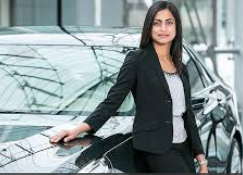 manufacturer has seen both CEO and CFO jobs held by women; and GM is now the second of two current Fortune 500 companies to do so.
manufacturer has seen both CEO and CFO jobs held by women; and GM is now the second of two current Fortune 500 companies to do so. 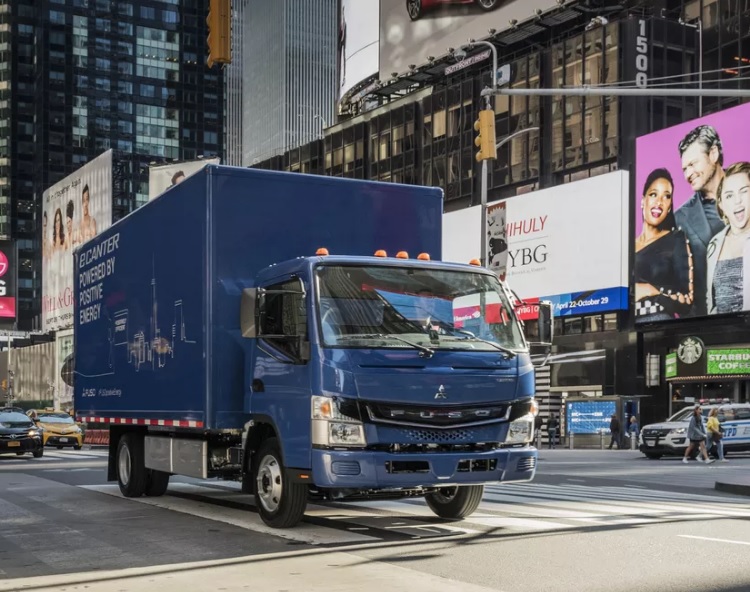 programs will launch later this year, and the company will go to full-scale production by 2021. During an event at Portland International Raceway in Portland, Ore., an electric version of its Freightliner Cascadia heavy-duty truck was revealed, along with an electric version of its M2 medium-duty truck. The eCascadia will go about 250 miles per charge, and the eM2 will go about 230, the company said. Daimler has previously shown off its Thomas Built battery electric Saf-T-Liner school bus and the electric Fuso eCanter delivery truck. “We are the undisputed global leader of the trucking industry and we want to remain in that position with regards to electric trucks,” said Martin Daum, global head of Daimler’s Trucks & Buses division.
programs will launch later this year, and the company will go to full-scale production by 2021. During an event at Portland International Raceway in Portland, Ore., an electric version of its Freightliner Cascadia heavy-duty truck was revealed, along with an electric version of its M2 medium-duty truck. The eCascadia will go about 250 miles per charge, and the eM2 will go about 230, the company said. Daimler has previously shown off its Thomas Built battery electric Saf-T-Liner school bus and the electric Fuso eCanter delivery truck. “We are the undisputed global leader of the trucking industry and we want to remain in that position with regards to electric trucks,” said Martin Daum, global head of Daimler’s Trucks & Buses division. to recommend, said Jake Fisher, CR’s director of automotive testing. The strong rating comes after
to recommend, said Jake Fisher, CR’s director of automotive testing. The strong rating comes after